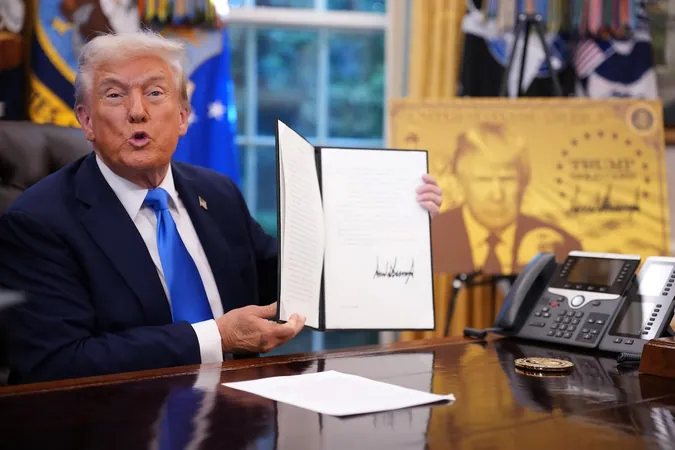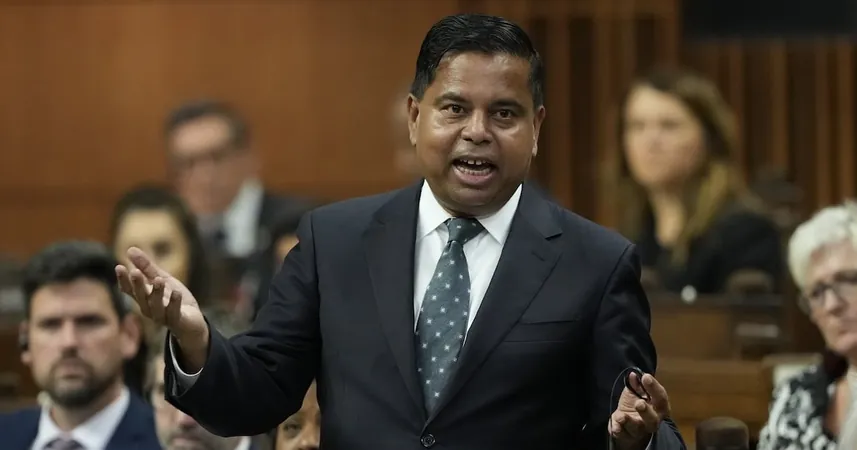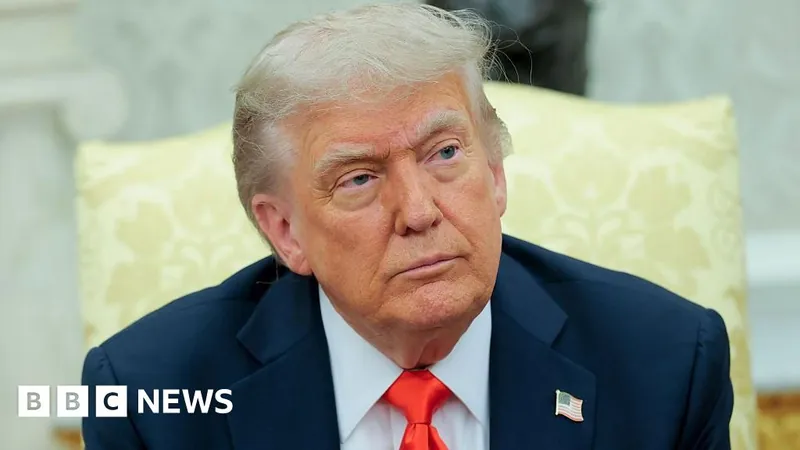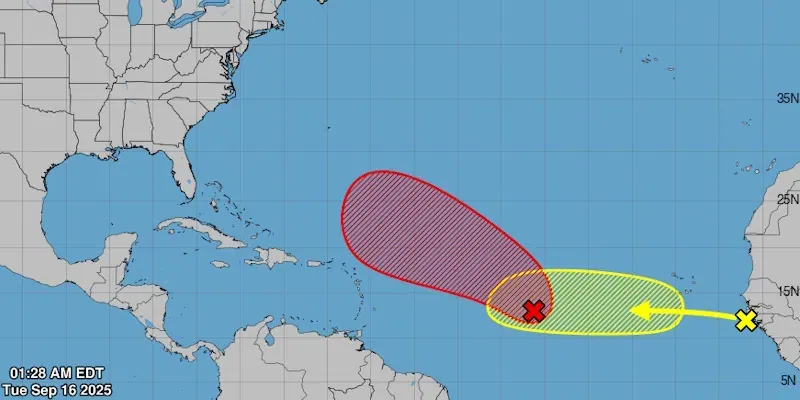
Is Trump’s H-1B Visa Fee a Windfall for Canada’s Job Market?
2025-09-22
Author: William
Huge Fee for H-1B Visas: A Game Changer for Canada?
As the U.S. government implements a staggering $100,000 annual fee for H-1B visas, experts are suggesting that this move could open the floodgates for Canadian businesses eager to attract foreign talent. President Trump’s proclamation, aimed at curbing the hiring of cheaper foreign workers over American locals, raises significant implications for the job market north of the border.
Canada’s Golden Opportunity to Attract Talent
Many analysts predict that the escalating costs will discourage skilled professionals from venturing to the U.S., thereby intensifying global competition for top talent. To secure an advantage, they argue, Canada must enhance its immigration policies, ensuring a streamlined pathway to permanent residency for these workers. "With challenges facing highly skilled workers trying to enter the U.S., Canada has a prime opportunity to position itself as a more appealing destination," noted Benjamin Bergen, president of the Council of Canadian Innovators.
Revising the Temporary Foreign Worker Program
Experts are calling for an overhaul of Canada’s Temporary Foreign Worker Program, particularly the Global Talent Stream, which is seen as a vital tool for recruiting skilled labor. Conversely, proposals from some political leaders, like Conservative Leader Pierre Poilievre, to shut down the TFW program could backfire, limiting companies' ability to source talent displaced by U.S. policies.
British Columbia's Bold Invitation
In response to Trump’s announcement, British Columbia’s Minister for Jobs and Economic Growth, Ravi Kahlon, took to social media to issue a call to tech talent, innovators, and scientists around the world: "Join us in building Canada’s economic future in beautiful B.C.!" This bold outreach illustrates Canada’s readiness to welcome skilled workers looking for new opportunities.
Challenges Amid Opportunities
While well-funded U.S. firms may easily absorb the new fees and continue enticing top professionals—especially in AI and quantum computing—Canada has the potential to capture this talent by implementing its own targeted visa programs. In just 48 hours after introducing a new application process in 2023, Canada received an astonishing 10,000 applicants, showcasing the interest in Canadian jobs.
Navigating Permanent Residency Hurdles
However, experts like Meika Lalonde of McCrea Immigration Law stress that Canada’s immigration system must adapt to make it easier for temporary residents to transition to permanent residency. A recent change that favors applicants based on profession and French proficiency has complicated this process, potentially slowing down the influx of skilled talent Canada desperately needs.
A Double-Edged Sword?
Despite these opportunities, there are concerns that American companies might poach even more Canadian talent due to the easier hiring process under the Canada-U.S.-Mexico Agreement. Senator Colin Deacon highlighted this risk, emphasizing that the new U.S. fee structure could inadvertently lead to a greater exodus of Canada’s top professionals southward.
In a climate of change, Canada stands at a crossroads—seize the moment to attract and retain international talent or risk watching its brightest minds head to the U.S. as the search for opportunity continues.









 Brasil (PT)
Brasil (PT)
 Canada (EN)
Canada (EN)
 Chile (ES)
Chile (ES)
 Česko (CS)
Česko (CS)
 대한민국 (KO)
대한민국 (KO)
 España (ES)
España (ES)
 France (FR)
France (FR)
 Hong Kong (EN)
Hong Kong (EN)
 Italia (IT)
Italia (IT)
 日本 (JA)
日本 (JA)
 Magyarország (HU)
Magyarország (HU)
 Norge (NO)
Norge (NO)
 Polska (PL)
Polska (PL)
 Schweiz (DE)
Schweiz (DE)
 Singapore (EN)
Singapore (EN)
 Sverige (SV)
Sverige (SV)
 Suomi (FI)
Suomi (FI)
 Türkiye (TR)
Türkiye (TR)
 الإمارات العربية المتحدة (AR)
الإمارات العربية المتحدة (AR)